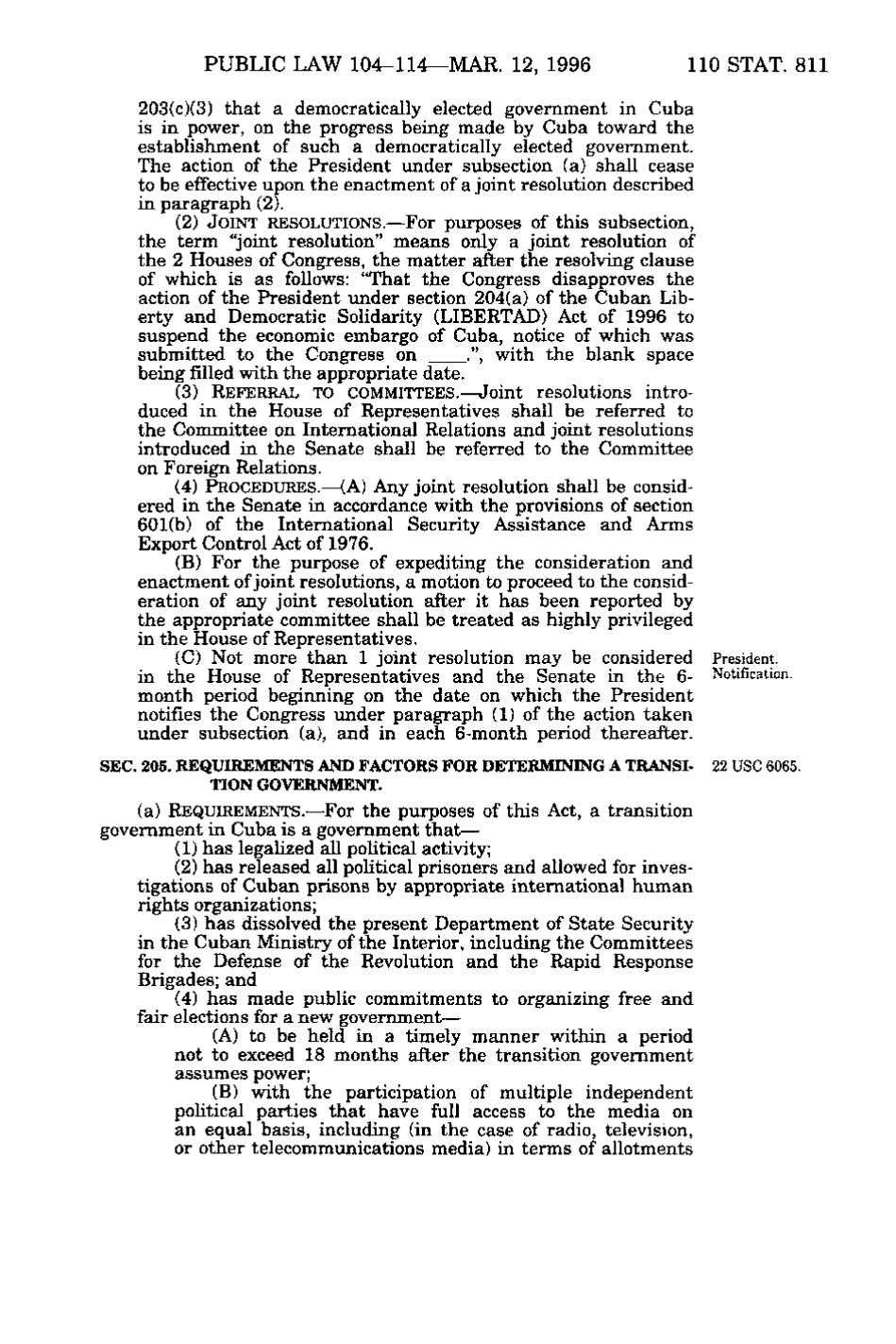PUBLIC LAW 104-114 —MAR. 12, 1996 110 STAT. 811 203(c)(3) that a democratically elected government in Cuba is in power, on the progress being made by Cuba toward the establishment of such a democratically elected government. The action of the President under subsection (a) shall cease to be effective upon the enactment of a joint resolution described in paragraph (2). (2) JOINT RESOLUTIONS.—For purposes of this subsection, the term "joint resolution" means only a joint resolution of the 2 Houses of Congress, the matter after the resolving clause of which is as follows: "That the Congress disapproves the action of the President under section 204(a) of the Cuban Liberty and Democratic Solidarity (LIBERTAD) Act of 1996 to suspend the economic embargo of Cuba, notice of which was submitted to the Congress on . ", with the blank space being filled with the appropriate date. (3) REFERRAL TO COMMITTEES.— Joint resolutions introduced in the House of Representatives shall be referred to the Committee on International Relations and joint resolutions introduced in the Senate shall be referred to the Committee on Foreign Relations. (4) PROCEDURES.— (A) Any joint resolution shall be considered in the Senate in accordance with the provisions of section 601(b) of the International Security Assistance and Arms Export Control Act of 1976. (B) For the purpose of expediting the consideration and enactment of joint resolutions, a motion to proceed to the consideration of any joint resolution after it has been reported by the appropriate committee shall be treated as highly privileged in the House of Representatives. (C) Not more than 1 joint resolution may be considered President. in the House of Representatives and the Senate in the 6- Notification. month period beginning on the date on which the President notifies the Congress under paragraph (1) of the action taken under subsection (a), and in each 6-month period thereafter. SEC. 205. REQUIREMENTS AND FACTORS FOR DETERMINING A TRANSI- 22 USC 6065 TION GOVERNMENT, (a) REQUIREMENTS.—For the purposes of this Act, a transition government in Cuba is a government that— (1) has legalized all political activity; (2) has released all political prisoners and allowed for investigations of Cuban prisons by appropriate international human rights organizations; (3) has dissolved the present Department of State Security in the Cuban Ministry of the Interior, including the Committees for the Defense of the Revolution and the Rapid Response Brigades; and (4) has made public commitments to organizing free and fair elections for a new government— (A) to be held in a timely manner within a period not to exceed 18 months after the transition government assumes power; (B) with the participation of multiple independent political parties that have full access to the media on an equal basis, including (in the case of radio, television, or other telecommunications media) in terms of allotments
�
